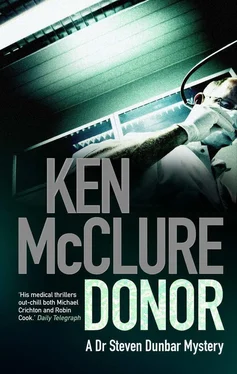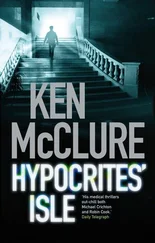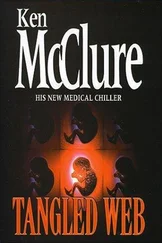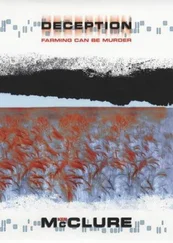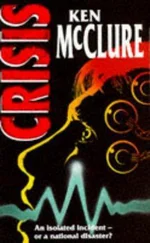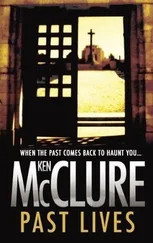Ken McClure - Donor
Здесь есть возможность читать онлайн «Ken McClure - Donor» весь текст электронной книги совершенно бесплатно (целиком полную версию без сокращений). В некоторых случаях можно слушать аудио, скачать через торрент в формате fb2 и присутствует краткое содержание. Жанр: Триллер, на английском языке. Описание произведения, (предисловие) а так же отзывы посетителей доступны на портале библиотеки ЛибКат.
- Название:Donor
- Автор:
- Жанр:
- Год:неизвестен
- ISBN:нет данных
- Рейтинг книги:4.5 / 5. Голосов: 2
-
Избранное:Добавить в избранное
- Отзывы:
-
Ваша оценка:
- 100
- 1
- 2
- 3
- 4
- 5
Donor: краткое содержание, описание и аннотация
Предлагаем к чтению аннотацию, описание, краткое содержание или предисловие (зависит от того, что написал сам автор книги «Donor»). Если вы не нашли необходимую информацию о книге — напишите в комментариях, мы постараемся отыскать её.
Donor — читать онлайн бесплатно полную книгу (весь текст) целиком
Ниже представлен текст книги, разбитый по страницам. Система сохранения места последней прочитанной страницы, позволяет с удобством читать онлайн бесплатно книгу «Donor», без необходимости каждый раз заново искать на чём Вы остановились. Поставьте закладку, и сможете в любой момент перейти на страницу, на которой закончили чтение.
Интервал:
Закладка:
Sheila and Cyril Barnes had lived in a neat, tidy, white-painted bungalow in the Glasgow suburb of Bearsden. It was in darkness when Dunbar arrived but a security light clicked on and illuminated the path as he approached the front door, keys in hand. The curtains of the neighbouring house to the left moved and a man looked out. Dunbar ignored him and concentrated on opening the door; it was well secured.
When he stepped cautiously inside, fearing a burglar alarm he had not been warned about, he paused in the darkness for a moment before running his palm down the wall to find the light switch. The place smelt musty, but he supposed it had been empty for some time now and the windows, of course, had been kept closed. Feeling very much like an intruder, he walked slowly through the hall and found the living room. The silence and emptiness were almost tangible as he clicked on the light.
It was a comfortable room with a cottage-style suite covered in light-coloured floral material positioned round a stone fireplace and various small tables handy for receiving cups and saucers. A large television set sat silently gathering dust in an alcove by the window. Photographs occupied most of the flat surfaces and souvenirs from past holidays sat easily with them. From these Dunbar deduced that the Barneses had one son. A wedding photograph of Sheila and her husband took pride of place on the writing bureau, a graduation photograph on the mantelshelf. It was old, so Dunbar assumed the man was Cyril.
He went in search of the main bedroom and found the dressing table where he’d been told he’d find the journal. It looked solid — a family heirloom perhaps. The tall mirrors had a number of chips round their edges, a legacy of many removals, he guessed. The make-up items lying on a coloured glass tray struck him as poignant as he thought of Sheila’s gaunt, pain-lined face. He opened the drawer and found the book where she had said it would be.
He had just sat down back in the living room to read it when the doorbell rang. It seemed uncommonly loud in the silence and made him jump. He answered it and found a short man with ginger hair and a moustache standing there. He was wearing a check shirt under a yellow cardigan, and brown flannels pulled well up over his midriff so that the belt nestled just below his chest. On his feet were sheepskin slippers, the kind you bought from craft centres on bus trips, and he was carrying a cardboard box.
‘Yes?’
‘Good evening. My name’s Proudfoot,’ said the stranger. ‘I live next door.’
‘Oh yes.’
‘I saw you arrive. I was wondering if there was any news of Cyril and Sheila?’
‘They’re very ill,’ replied Dunbar, suspecting that the man was really checking up on him. ‘Sheila asked me to pick something up for her.’
‘I see,’ said Proudfoot uncertainly. ‘Are you a relative, might I ask?’
‘No.’
‘I see, then that makes things a bit difficult…’
‘What’s on your mind, Mr Proudfoot?’ asked Dunbar. The man obviously wanted something more than information.
‘Actually, it’s my camera,’ said Proudfoot with some embarrassment.
‘Your camera?’
‘I hate being petty at a time like this, but Cyril was using my camera. His own was being repaired but it’s back now. In fact, I’ve got it here. The postman brought it this morning.’ He held up the cardboard box. ‘I rather hoped I might have mine back.’
‘I see,’ said Dunbar. ‘Why don’t you come in? I’m sure Cyril wouldn’t mind in the circumstances.’
‘Thank you very much,’ said Proudfoot, immediately relaxing and stepping inside.
‘Do you know where it is?’ asked Dunbar.
‘Oh yes. Cyril keeps his photographic equipment in this little cupboard here.’
Proudfoot bent down and pulled open a small cupboard door to the left of the hearth. ‘Here it is,’ he announced, pulling out a leather camera case. ‘I’ll just put his back, though I don’t know what he’s going to say when he hears they didn’t find anything wrong with it. He’s been having problems with spoilt film. Three have come back completely fogged. It’s been driving him up the wall.’
‘Probably a defective batch.’
‘I think he tried more than one,’ said Proudfoot.
‘You’re both keen photographers, then?’
‘It’s our hobby. Birds mainly, but Cyril liked atmospheric stuff too, you know, derelict cranes in the old shipyards along the river, girders against the sky, twilight of an industry, that sort of thing. Maybe it had something to do with his illness, sic transit gloria mundi and all that.’
Dunbar nodded.
‘We’re planning a trip down the Clyde to Arran in the spring.’
‘Sounds nice,’ said Dunbar, but somehow he didn’t think Cyril would be going.
Dunbar decided to take Sheila Barnes’s journal back to the hotel. That way he could photocopy anything he thought relevant, and return the journal later in the week. He stopped on the way and bought a bottle of gin and a litre of tonic water. He had no wish to go out or to spend the remainder of the evening in the shallow fraternity of the hotel bar, but he did need something to take the edge off the day.
After a long shower, he wrapped himself in a dark-blue towelling robe and poured himself a drink. He placed it on the bedside table while he got comfortable on the bed and opened Sheila Barnes’s journal. He had assumed that it would be a personal diary in which she mentioned the patient at the centre of her allegations but it proved to be much more comprehensive than that. She had kept notes about the progress of all the transplant patients she had nursed during her career. She had obviously been a dedicated, professional nurse, who cared deeply about the people in her charge, and they had played a major role in her life. There was genuine concern in the pages of her journal and it wasn’t specific to any one patient.
When he came to the time when Kenneth Lineham’s transplant had gone wrong, he could feel her involvement reach out to him from the page. The sudden rise in temperature leading to fever and delirium, the successive changes of immuno-suppression therapy which had proved ineffectual, the anguish of the boy’s parents, the consultations with colleagues and the growing belief that her patient had been given an incompatible organ. Her initial reluctance to voice her fears and then the relief when she finally did. It was there in black and white and there was nothing hysterical about it.
After the boy’s death, the journal recorded her bitter disappointment that her observations were not taken seriously and her anger at being considered neurotic. Her gradual disenchantment with the establishment became obvious as it closed ranks against her. There was a record of a subsequent meeting with a local journalist who seemed interested at first in what she had to say but then did not follow up with a story.
Dunbar was struck by the similarity between what Sheila Barnes had written and what Lisa Fairfax had told him the previous evening. It worried him; he couldn’t dismiss it as coincidence. It wasn’t just the end result that had been the same. The details struck him as being identical. He leaned his head back on the wall for a moment and looked up at the ceiling before continuing to read.
The operation on Kenneth Lineham had been performed by a Doctor Phillip Cunningham, James Ross’s senior registrar at the time. According to Sheila Barnes, he had taken the boy’s death badly, as had all the staff, and had even agreed with her privately that the severity of the rejection suggested that there was something wrong with the donor organ, but he had been reluctant to voice this openly at the time, preferring instead to accept the official view that it had just been one of those things. After all, the lab reports from both the donor’s hospital and Medic Ecosse agreed that the organ was compatible, so there was nothing more to be said. He had a career to consider.
Читать дальшеИнтервал:
Закладка:
Похожие книги на «Donor»
Представляем Вашему вниманию похожие книги на «Donor» списком для выбора. Мы отобрали схожую по названию и смыслу литературу в надежде предоставить читателям больше вариантов отыскать новые, интересные, ещё непрочитанные произведения.
Обсуждение, отзывы о книге «Donor» и просто собственные мнения читателей. Оставьте ваши комментарии, напишите, что Вы думаете о произведении, его смысле или главных героях. Укажите что конкретно понравилось, а что нет, и почему Вы так считаете.
